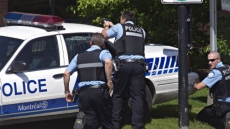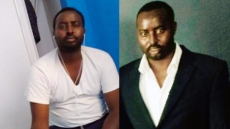OTTAWA — The federal Liberals have decided a new advisory board, not the government, should select potential new judges to sit on the Supreme Court of Canada.
The government announced Tuesday it will change the manner in which a Supreme Court justice is appointed, saying it's time for the process to "demonstrate a degree of rigour and responsibility" that may have been missing in the past.
Former prime minister Kim Campbell will chair the seven-member, non-partisan advisory board that will recommend three to five candidates for the high court to the prime minister for consideration.
Today, we are announcing a new Supreme Court appointment process that is open, transparent & accountable. Read more https://t.co/sjAInj6a2w
— Justin Trudeau (@JustinTrudeau) August 2, 2016
The change is similar to one the Liberals brought in months ago to appoint senators. An independent body now makes decisions about who should be named to the upper chamber, a process that also enables Canadians to apply for the jobs themselves.
Much like the Senate, the prime minister will still decide which nominee should join the high court.
The Liberals said the new appointment process will add openness and transparency to the process of selecting new Supreme Court justices.
They are hoping to avoid the outcome the Conservatives faced when the high court killed the appointment of Marc Nadon, saying he didn't meet the constitutional requirements for a Quebec justice.

In a letter published Tuesday in the Globe and Mail, Prime Minister Justin Trudeau said the process will "will set a higher standard for accountability."
"Gone are the days of governments — Liberal and Conservative alike — nominating Supreme Court justices through a secretive backroom process," wrote Trudeau.
"Canadians deserve better."
Interested Canadian lawyers or judges, who meet the qualifications and are "functionally bilingual," will be able to apply for a position on the Supreme Court scheduled to open Sept. 1 with the retirement of Justice Thomas Cromwell.
The government said it plans to publicly release the questionnaire each candidate must answer and some — but not all — of the answers from the eventual nominee.

Ottawa also said it will consult Chief Justice Beverley McLachlin, provinces, territories, and opposition parties on the nominee.
The House of Commons and Senate justice committees will have the chance to question Campbell and Justice Minister Jody Wilson-Raybould about the incoming Supreme Court justice. The parliamentary committees will also get an opportunity to question the nominee through what the government calls a "moderated question and answer session."
The advisory board chaired by Campbell will have seven members.
Four members have been designated by the Canadian Judicial Council, the Canadian Bar Association, the Federation of Law Societies and the Council of Canadian Law Deans.
Wilson-Raybould named the other three members, two of whom are from outside the legal community.
WANT TO BE ON THE SUPREME COURT? HERE ARE THE REQUIREMENTS FOR NOMINEES

OTTAWA — Do you want to be a Supreme Court justice? You may have a chance at a seat on the high court if you meet the requirements and criteria to be used in the new selection process. If you do, apply before the deadline of Aug. 24:
1) First, you have to be a judge or a lawyer. The Constitution says to be eligible for appointment to the Supreme Court of Canada, a candidate has to be a current or former judge of a provincial superior or appeals court, or be a current or former lawyer with 10 years standing at the bar of a province. So if you're neither a judge nor a lawyer, you're better off applying for a Senate seat.
2) Any new Supreme Court justice has to be functionally bilingual. A new justice will be expected to read submissions as well as take part in oral arguments without the need for translation help.
3) Candidates have to have a "demonstrated superior knowledge" of Canadian law, shown through specialized training or scholarly writing. Bonus points for having knowledge of Quebec civil law and indigenous legal traditions.

4) Critical thinking skills are a must. Candidates need to have "superior analytical skills," the ability to "resolve complex legal problems" and synthesize a large of amount of information about the social context around legal disputes, including being "be sensitive to changes in social values relating to the subject matter of cases before the Supreme Court." They need to show they can take all this, put it into writing — excellent writing, nothing less — and do all the work "under significant time pressures."
5) Constitutional, linguistic and professional qualifications aside, what are you like as a person? Are you a beacon of moral integrity? Show respect and considerations for others? Are your views diverse, "neither too narrow nor resistant to change"? Do you have the intestinal fortitude to make decisions at odds with the government, public opinion or your own colleagues? Can you keep deliberations secret? And can you set aside your own opinions to measure the evidence "fairly and impartially"? If you answered yes to all of those questions, you pass this part of the test.
6) Now the last part: The needs of the court itself. Candidates will be evaluated on how well they help the court deal with constitutional and charter cases, whether their legal expertise fills a void among the justices and whether they help the Liberals achieve gender parity and diversity on the high court.





